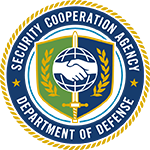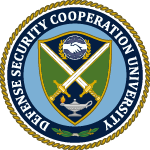About ICB
Institutional Capacity Building (ICB) encompasses Security Cooperation (SC) activities that directly support partner nation efforts to improve security sector governance and core management competencies needed to effectively and responsibly achieve shared security objectives.
Understanding a partner’s institutional capacity is critical to the development of an SC full-spectrum approach that enables allies and partner nations to develop institutional capabilities that are necessary and sufficient to successfully perform a security role in support of shared objectives.
ICB helps examine and address problems in broader, systemic factors, allowing allies and partners to:
- Understand requirements, develop forces, and purchase or obtain the articles and services to develop, employ, and sustain required capabilities;
- Successfully absorb and integrate fully developed capabilities into their existing security forces;
- Effectively and responsibly employ those capabilities in the pursuit of common objectives with the U.S. and its partners; and
- Adequately staff, sustain, and maintain, those capabilities throughout their lifecycle and eventual retirement.
Why is ICB Essential to Security Cooperation
ICB has become an increasingly important component of the U.S. approach to Security Cooperation. The Department of Defense (DoD) has offered support to allies and partners in the development of their institutions for many years, but the term “Institutional Capacity Building” is relatively new, being first used in the National Defense Authorization Act of 2017 (NDAA 17). NDAA 17 instituted a wide range of reforms in Security Cooperation, including the authorities and programs DoD uses to build partner capacity.
ICB is an essential element of a full-spectrum Security Cooperation approach that postures the ally or partner to be successful in achieving a mutually agreed upon security roles through the strengthening of their defense policy and strategy; legal authorities and frameworks; processes and management systems; resourcing systems, doctrine, or operational concepts; and command and control of their forces.
Applying a full-spectrum approach is a strategic advantage for DoD, building effective alliances and partnerships to achieve shared results while promoting American values and respect for international norms. These include core values such as respect for human rights, the law of armed conflict, healthy civil-military dynamics, democratic principles, civilian-harm mitigation, and anti-corruption.
ICB is executed in accordance with best practices, promoting principles that enable security sector institutions to be effective, accountable, transparent, and responsible to national political systems, especially regarding good governance and oversight of security forces. ICB, as a Security Cooperation tool, is core to enabling preparedness, deterring threats, and prevailing in strategic competition.
What Are the Principles of Effective ICB?
Strategically Driven
Driven by U.S. interests and values. When integrated early into Security Cooperation planning and development, ICB enhances strategic dialogue with allies and partners regarding shared objectives and roles, and enables a comprehensive, full-spectrum approach to ally and partner capability and capacity development.
Problem Focused
Assesses shortfalls in and challenges to institutional performances that impede ally and partner abilities to execute missions and roles. Considers appropriate entry points for engagement with the ally or partner, the enablers and inhibitors of change and/or development.
Partner Centric
Responsive to allies’ and partners’ priorities and their unique cultural, political, and institutional dynamics, ICB is targeted and tailored to the partner. It is shaped by mutual interests and avoids the projection or imposition of U.S. models, which may not fit an ally or partner’s specific context.
Who Do We Engage With on ICB?
ISG and the Defense Institute of International Legal Studies (DIILS) are components of DSCA’s Defense Security Cooperation University (DSCU), whose mission is to work with ally and partner civilian and military institutions, including Ministries of Defense, Joint or General Staffs, military services, defense agencies, and related national security organizations.
Both components of the Defense Security Cooperation Agency (DSCA), ISG and the Defense Institute of International Legal Studies (DIILS) are situated within the Defense Security Cooperation University (DSCU), whose mission, inter alia, is to implement Institutional Capacity Building, Security Cooperation education, and related programs and initiatives with our allies and partners.
Questions
For more detailed information on how to apply ICB principles and best practices:
- Check out the Institute for Security Governance (ISG) series of "ICB Smart Sheets." Smart Sheets – the first of many Institutional Capacity Building resource documents – cover specific ICB functional or issue areas. Each sheet presents the specific challenge faced, the current state of the field, the role ICB plays in resolving the challenge, and provides ICB best practice recommendations.
- Ask an ISG expert about any ICB question at dsca.isg.info@mail.mil.
ICB Examples
Colombia
- What was the catalyst for Colombia’s foray into Institutional Capacity Building (ICB) Project?
- When did the Colombia project begin and what was its focus?
- What gains has Institutional Capacity Building (ICB) afforded our strategic partner?
- What challenges did this project face in building the partner’s institutional capacity?
- Are there implications for the Colombia project beyond its borders?
Jordan
- What was the catalyst for Jordan’s foray into Institutional Capacity Building (ICB)?
- When did the Jordan project begin and what was its focus?
- What gains has Institutional Capacity Building (ICB) afforded our strategic partner?
- What challenges did this project face in building the partner’s institutional capacity?
- Are there implications for the Jordanian project beyond its borders?

